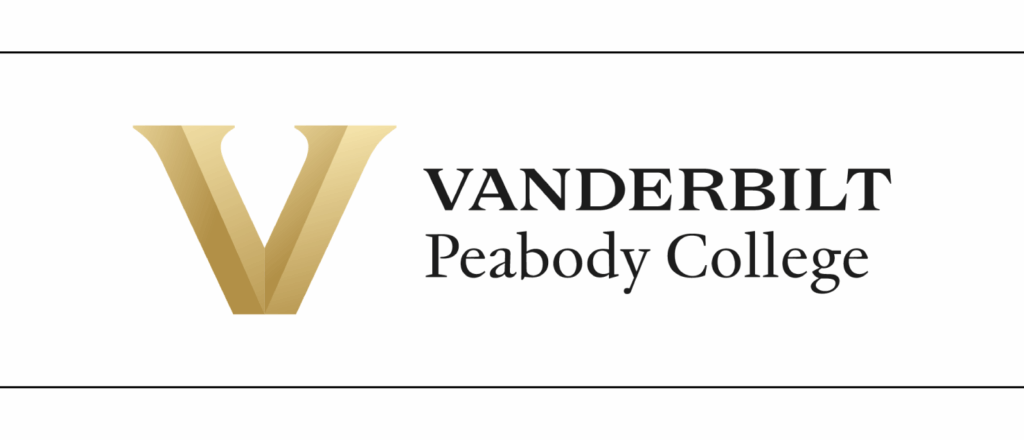Why M-HEAL?
The Master of Education in Higher Education Administration and Leadership (M-HEAL) prepares students to navigate the complexity of colleges and universities and step into leadership roles in areas such as strategic planning, student affairs, advising, enrollment management, and academic administration.
Open to students from all undergraduate backgrounds, the program reflects the interdisciplinary nature of higher education and fosters collaboration across diverse academic cultures.
With a focus on governance, budgeting, accreditation, faculty affairs, student development, and organizational change, M-HEAL equips graduates with the systems-level thinking and practical management skills needed to promote student success and institutional effectiveness.


International Collaboration
The College of Education and Human Development at AUIB was established in part through a U.S. Department of State grant in collaboration with Vanderbilt University’s Peabody College of Education and Human Development. This collaboration will continue to grow in the coming years through the implementation of the Master of Education in Higher Education Administration and Leadership (M-HEAL). The curriculum will be developed in consultation with Vanderbilt faculty, allowing the program to benefit from the depth and quality of Vanderbilt’s graduate education programs.

Admission Criteria
To be considered for admission, applicants must:
- Hold a bachelor’s degree from AUIB or another accredited institution
- Have a minimum of two years of professional experience in a higher education institution or an organization that supports higher education
- Provide proof of English language proficiency (e.g., TOEFL, IELTS, Duolingo)
- Submit a personal statement explaining how the program aligns with their professional goals and why it would be beneficial to their career development
Admission: Rolling Admissions – Spaces are limited
Questions? Contact us at +9647871998019
Or call AUIB all week between 8 AM – 9 PM via 6227 or 6228

The Program
The program is a 36-credit, cohort-based master’s degree leading to the Master of Education (MEd) in Higher Education Administration and Leadership. It includes ten 3-credit courses and a 6-credit Practical Thesis, to be completed over a two-year period.
The academic calendar follows a trimester system, with three terms per year (spring, summer, and fall) totaling six terms over two years. The spring and fall terms each consist of two 14-week courses, delivered in person on Saturdays at the AUIB campus: Session 1 runs from 09:00–12:00, and Session 2 from 13:00–16:00. The summer term is a seven-week session, with one course offered on Saturdays from 09:00–16:00. Each term also includes one additional Saturday dedicated to focused Thesis Preparation.
Opportunities may also exist to complete certain coursework at Vanderbilt University in Nashville, Tennessee, USA. Successfully completed courses at Vanderbilt will appear on a Vanderbilt transcript, and standard Vanderbilt admissions requirements and fees will apply.
The program calendar is aligned with the AUIB graduate program schedule, with terms running as follows:
- Spring: Mid-January to mid-May
- Summer: Early June to Late July
- Fall: First week of September to mid-December
- Strategic Leadership and Management for International Organizational Effectiveness
Examines leadership and management strategies essential for guiding complex, mission-driven institutions in a global context.
- Institutional Research and Data-Driven Decision Making
Focuses on data collection, analysis, and reporting to inform strategic planning and promote institutional effectiveness.
- International Organizations, Higher Education, and Global Governance
Explores the influence of global organizations on higher education policy, governance, and international collaboration.
- Higher Education Policy
Explores the formulation, implementation, and impact of higher education policy at local, national, and global levels.
- Student Affairs in Higher Education
Introduces the roles, structures, and ethical responsibilities of student affairs in promoting student success and engagement.
- Higher Education Finance and Budgeting
Introduces financial planning, budgeting, and resource allocation within the economic and policy frameworks of higher education.
- Applied Leadership and Management in Higher Education
Applies leadership theories and management principles to academic and administrative challenges in higher education settings.
- Curriculum Development and Academic Affairs
Examines curriculum design, academic governance, and strategies for innovation and quality assurance in academic programs.
- Global Perspectives in Higher Education
Analyzes global trends and comparative higher education systems to develop cross-cultural leadership competencies.
- Marketing and Enrollment Management in Higher Education
Covers strategies for student recruitment, retention, and institutional branding aligned with mission-driven enrollment goals.
The Practical Thesis is the capstone requirement of the M-HEAL program, designed to integrate academic learning with applied professional experience. Early in the process, each student will be assigned a faculty thesis advisor who will provide guidance from proposal development through final submission. Students may choose one of two distinct pathways to align with their career goals and professional interests.
- Research Thesis: This option is a scholarly, research-based project addressing a significant issue in higher education. Students will identify a critical problem, design and implement an original research study, and analyze their findings to propose evidence-based, innovative solutions. Emphasis is placed on rigorous research design, data collection, and scholarly writing.
- Internship Thesis: This pathway centers on a supervised practicum within a higher education institution or related organization. Students will engage directly in the daily operations of the host institution or organization while pursuing a focused research study based on questions emerging from their internship experience. The resulting thesis will integrate fieldwork with relevant academic frameworks and research, providing an analytical and reflective account of their work.
In both pathways, students are expected to demonstrate mastery of program concepts, advanced critical thinking, and the ability to connect theory with practice in meaningful ways. The Practical Thesis not only serves as a culmination of the M-HEAL learning experience but also as a professional portfolio piece that showcases each graduate’s expertise and leadership potential in higher education.
Career Preparation
Graduates of the M-HEAL program are prepared for diverse leadership and administrative roles, including:
- University or college administration (academic affairs, student affairs, enrollment services, institutional research)
- Policy and planning roles in ministries of higher education or government agencies
- Leadership positions in education-focused NGOs, nonprofit organizations, or policy institutes
- Organizational development and program management roles in international education or student services
- Consulting roles in higher education leadership, planning, and institutional effectiveness
The MEd degree prioritizes practical leadership, applied problem-solving, and day-to-day institutional management, ensuring graduates are equipped to make immediate and lasting contributions to higher education in Iraq, the region, and globally. The program will also prepare graduates to pursue advanced professional study, including doctoral degrees such as the Doctor of Education (EdD), further strengthening their capacity for leadership and applied scholarship in higher education.
What Sets Us Apart?
This is the first professional master’s degree in Iraq specifically designed for working professionals in higher education leadership and administration, rather than classroom teaching.
The program is supported by Vanderbilt University’s Peabody College, consistently ranked among the top colleges of education in the world.
Students benefit from connections to a global network of top-tier universities, institutions, and international higher education leaders.
Courses are taught by faculty with extensive international experience in higher education administration, policy, research, and strategic leadership.
The curriculum is designed to bridge theory and practice, with a strong emphasis on real-world application through a Practical Thesis.
Students study on AUIB’s modern campus, with state-of-the-art classrooms, technology, and learning environments designed to support professional education.
The Saturday-only, trimester-based schedule is tailored to meet the needs of working professionals without interrupting their careers.
Students may cross-enroll in summer courses at Vanderbilt University, gaining international experience and academic credit from a leading U.S. institution.
The program fosters deep professional relationships and peer collaboration through a cohort model that encourages mutual support and network building.
The program emphasizes systems-level thinking, data-informed decision making, and innovation to prepare graduates to lead change in higher education institutions.
Who Should Apply?
This program is perfect for:
- CAHEI Fellows
- AUIB Teaching and Learning Design (TLD) graduates (with at least two years of professional experience)
- Higher education professionals across Iraq
- Ministry-affiliated consultants
- Professionals in international higher education
- Staff in public and private HEIs
- Directors of research centers
- University finance personnel
- Coordinators of international student services
- Consultants in change management and institutional effectiveness


Tuition (2025-2026)
Scholarships for the program are available from multiple sources, and all students are encouraged to apply. AUIB also provides scholarships through specific agreements with ministries, NGOs, international schools, and other partner organizations. These scholarships are open to all students.
